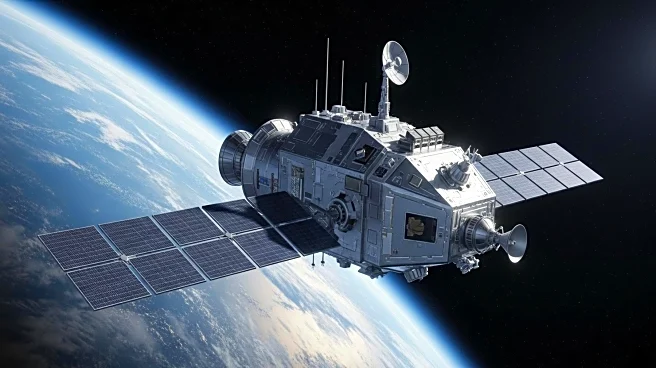What's Happening?
Northrop Grumman's Cygnus XL cargo spacecraft, on its debut mission to the International Space Station (ISS), encountered a thruster issue that has delayed its scheduled arrival. The spacecraft, which launched aboard a SpaceX Falcon 9 rocket, experienced premature shutdowns of its main engine during orbit-raising burns. This issue has postponed the planned docking with the ISS, originally set for September 17, 2025. Despite the thruster problem, all other systems of the Cygnus XL are reported to be functioning normally. The Cygnus XL, a larger version of the Cygnus spacecraft, is designed to carry more than 11,000 pounds of cargo, including scientific investigations and supplies, to the ISS.
Why It's Important?
The delay in the Cygnus XL's arrival at the ISS highlights the challenges and risks associated with space missions, particularly those involving new spacecraft models. This mission is crucial for NASA's ongoing supply chain to the ISS, as it carries essential supplies and scientific equipment. The incident underscores the importance of reliable cargo delivery systems in maintaining the ISS's operations and supporting its crew. The successful resolution of this issue is vital for Northrop Grumman, as it impacts their reputation and future contracts with NASA. Additionally, the delay may affect the scheduling and logistics of subsequent missions to the ISS.
What's Next?
NASA and Northrop Grumman are currently reviewing plans to conduct the remaining rendezvous maneuvers required for the Cygnus XL to dock with the ISS. A new arrival date is under consideration, and mission managers are working to resolve the thruster issue. The outcome of these efforts will determine the timeline for the delivery of the cargo to the ISS. Stakeholders, including NASA and Northrop Grumman, are likely to closely monitor the situation to ensure the mission's success and to mitigate any potential impacts on future missions.









